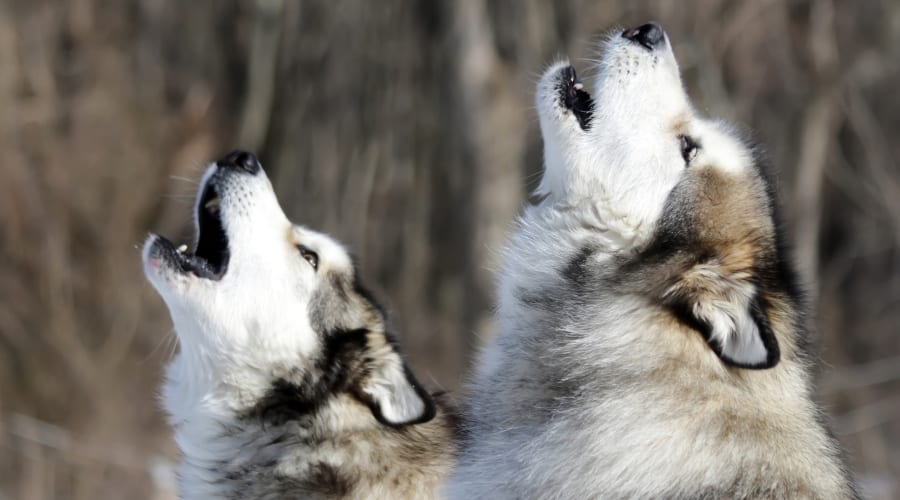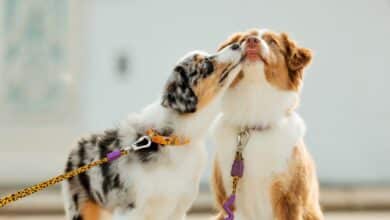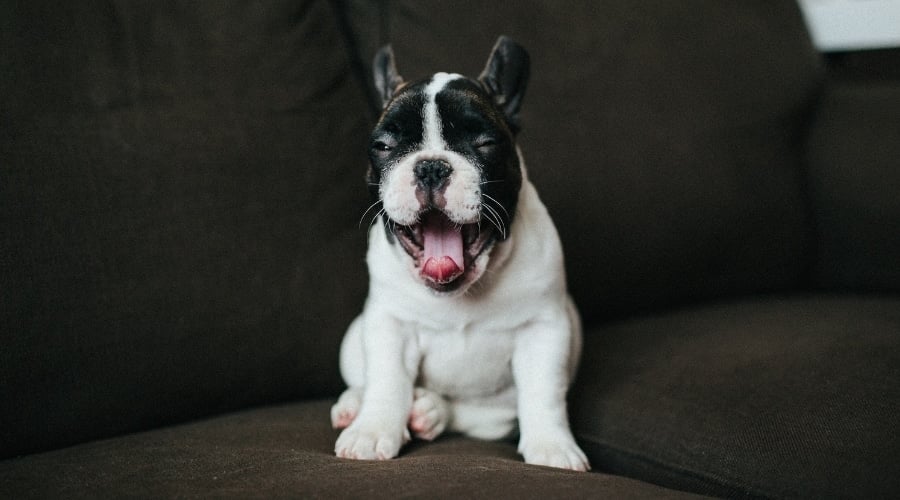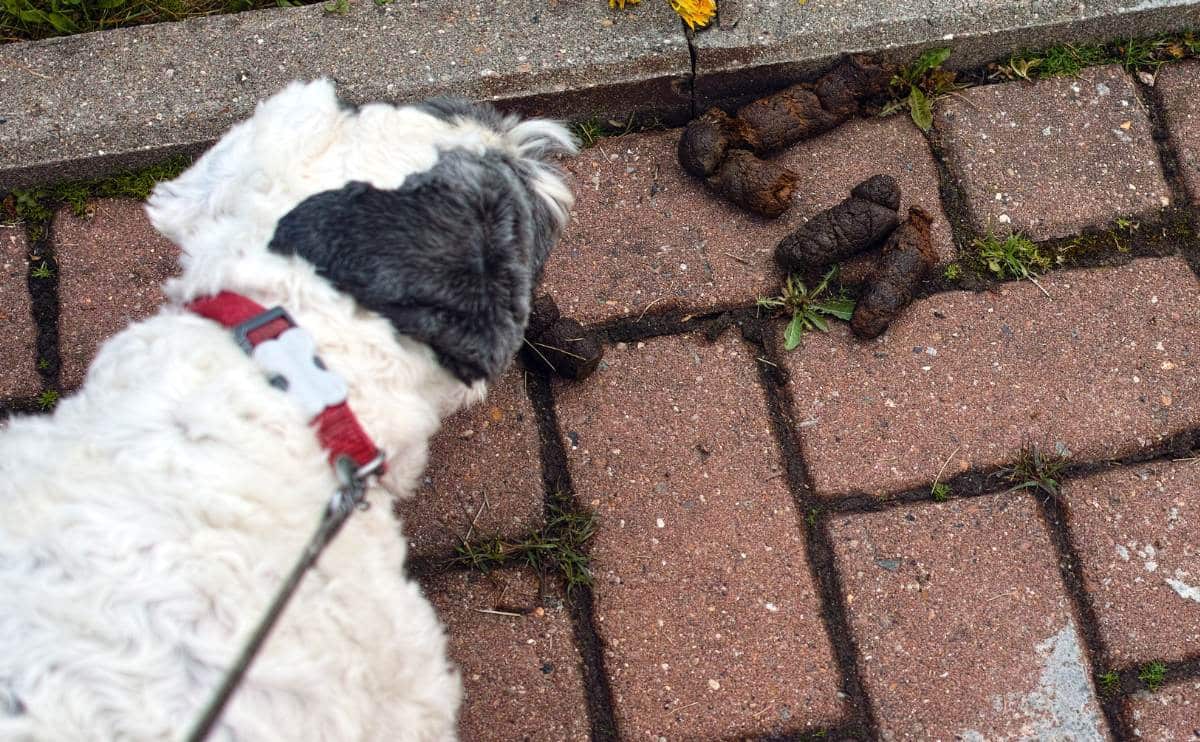Dog Butt-Licking: Gross Habit Or Vet Emergency?
When you purchase through links on our site, we may earn a commission. Here’s how it works.
If your dog won’t stop licking their butt, don’t just brush it off as another one of their quirky behaviors. While occasional rear-end grooming is normal, excessive licking can signal a bigger issue, anything from impacted anal glands to parasites, allergies, or even anxiety.
Table of Contents
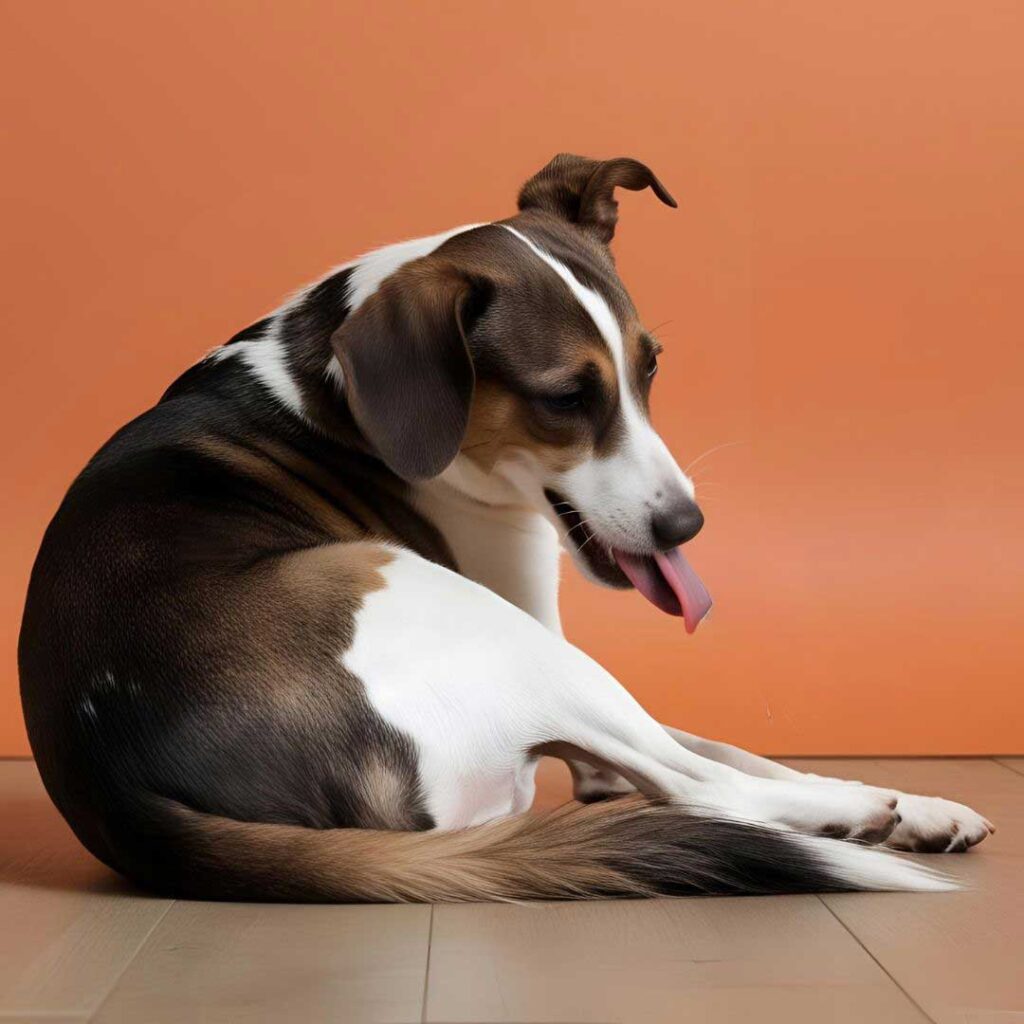
So, how do you know if your pup’s rear-end obsession is harmless or a red flag? Let’s break it down so you can determine if it’s time to call the vet or just time to distract them with a new toy.
Is Your Dog’s Butt Obsession a Red Flag?
Not all butt-licking is created equal. If your dog suddenly starts licking more than usual, it may indicate an underlying problem. Look out for other symptoms that could point to a bigger issue:
- Scooting across the floor (as if they’re auditioning for a furniture commercial)
- Whining or signs of discomfort
- A strong, fishy odor
- Redness, swelling, or discharge near the anus
If your dog is licking so much that they’re practically twisting into a doggy yoga pose, it’s time to investigate.
“Does My Dog Have a Butt Problem?” Quick Quiz
Answer yes or no to these questions:
- Has your dog recently started licking their butt more frequently than before?
- Does your dog seem uncomfortable, whining, or restless?
- Have you noticed scooting or dragging their butt across the floor?
- Does their rear-end area look red, swollen, or irritated?
- Is there a strong odor coming from their backside?
If you answered yes to two or more of these, it might be time for a vet visit!
Vet visits can get expensive. Pet insurance can help cover exams, medications, and treatment, making it easier to manage costs while keeping your pup healthy. While pre-existing conditions won’t be covered, pet insurance can be a lifesaver for unexpected accidents, illnesses, and emergencies. Having coverage ensures you can focus on your dog’s health without worrying about the financial burden. Find the best pet insurance for your dog now.
1. Anal Gland Issues: The Smelly Truth
One of the most common reasons for excessive butt-licking? Impacted or infected anal glands. These tiny sacs near your dog’s anus normally release fluid when they poop, helping mark their territory. But when they get clogged, the discomfort (and smell) begins.
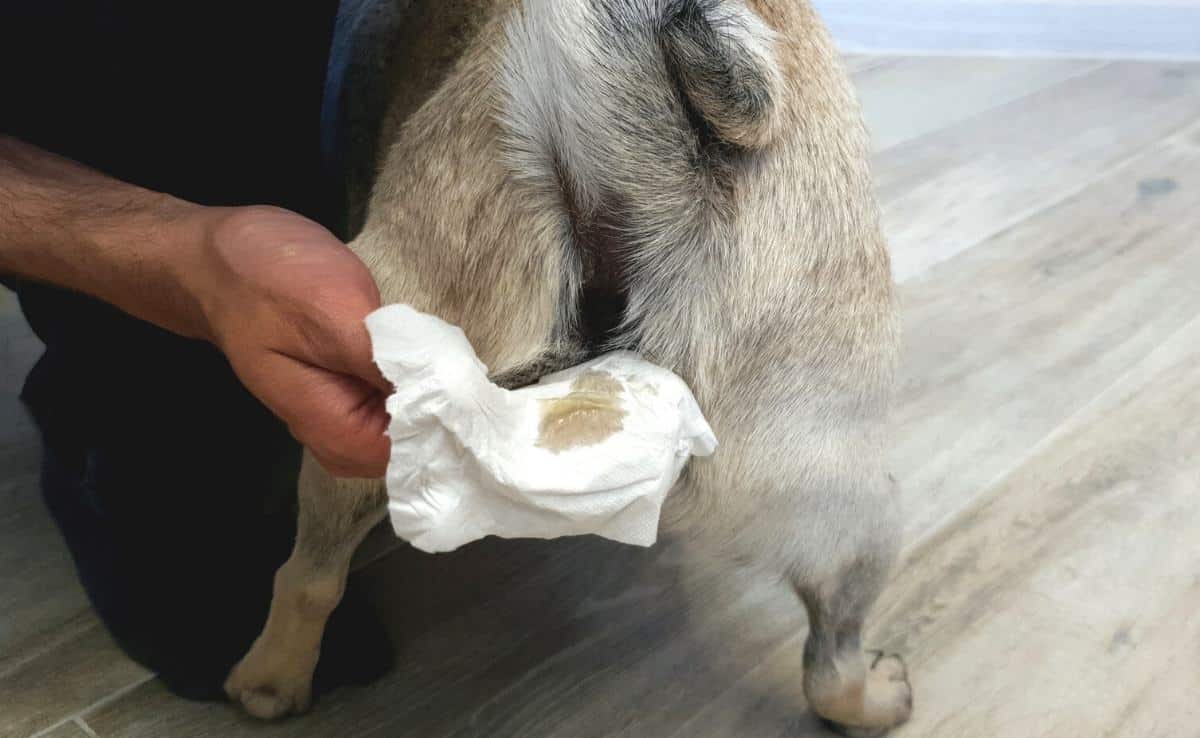
Signs of Anal Gland Problems
- Scooting across the floor like he’s training for a furniture commercial.
- A strong, fishy odor that could make a skunk jealous.
- Redness, swelling, or pus near the anus.
If left untreated, impacted glands can turn into painful infections or even rupture, leading to surgical intervention.
Why Some Dogs Are More Prone to Anal Gland Issues
Anal sac disease isn’t just an unlucky break; it affects about 15.7% of dogs. Some pups are at a higher risk, including:
- Small breeds (like Chihuahuas and Toy Poodles)
- Dogs with chronic diarrhea (loose stools don’t apply enough pressure to express the glands)
- Pets with skin allergies (which can cause inflammation around the glands)
What to Do If Your Dog Has Anal Gland Issues
If your dog is showing any of these symptoms, a trip to the vet is a must. A veterinarian can manually express the glands and prescribe treatment if there’s an infection. (Yes, this involves a very “hands-on” approach, but better them than you, right?)
For dogs with recurring issues, prevention is key:
- High-fiber diet to promote firm stools
- Weight management (obesity can increase risk)
- Regular gland expressions (by a vet, groomer, or even you, if you’re brave enough!)
Curious? Learn how to safely express your dog’s anal glands at home, if you have the right technique and a strong stomach!
2. Parasites: A Hidden Cause?
Could an uninvited guest be causing your dog’s rear-end obsession? Worms, fleas, and mites are some of the most common reasons behind intense itching and irritation.
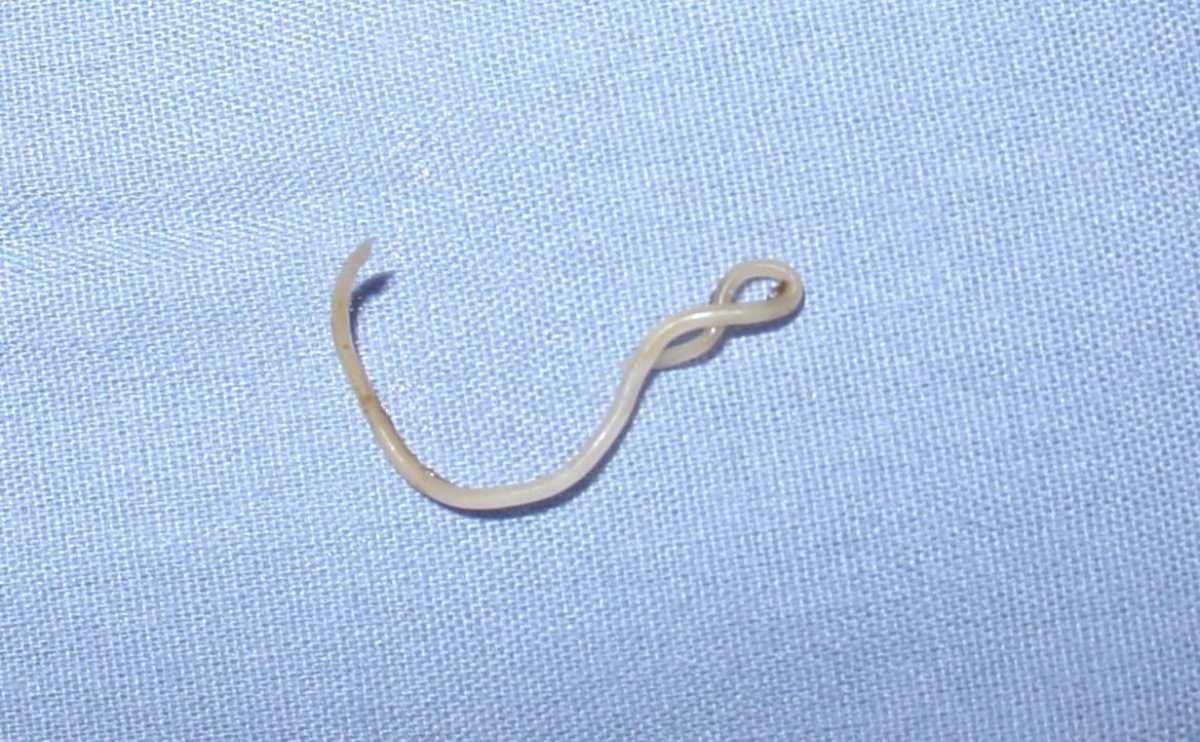
Common Parasites That Cause Butt-Licking
- Tapeworms: If you spot tiny, rice-like particles in your dog’s stool or around their anus, these parasites could be to blame.
- Fleas & Mites: These pests don’t just cause scratching, they can also trigger skin infections, making your pup even more miserable.
- Hookworms, Roundworms, & Whipworms: These internal parasites can lead to discomfort, digestive issues, and excessive licking.
What to Do If You Suspect Parasites
- Check for signs. Look for worms in stool, flea dirt (tiny black specks), or excessive scratching and licking.
- Schedule a vet visit. A fecal test can confirm internal parasites, while a skin exam can detect external infestations.
- Start treatment immediately. Your vet may prescribe dewormers, flea treatments, or medicated shampoos based on the type of parasite.
- Deep clean your home. Wash bedding, vacuum carpets, and treat your yard to prevent re-infestation.
- Learn how to eliminate fleas.
- Use year-round prevention. Monthly flea and tick prevention and parasite preventatives can stop future infestations before they start.
Left untreated, these parasites can lead to serious health issues beyond just itching.
3. Skin Conditions: Allergies & Infections That Cause Itching (Back There)
If your dog is obsessively licking his rear, a skin condition, whether from allergies or an infection, could be the root cause.

Allergies: Food & Environmental Triggers
Dogs with allergies don’t just itch in one spot, they often lick their paws, scratch their ears, or develop red, irritated skin all over.
- Food Allergies: Diagnosing food allergies takes time. Common culprits include proteins like chicken or beef. Your vet may recommend switching to a limited-ingredient diet or trying a novel protein like duck or kangaroo.
- Environmental Allergies: If your dog’s symptoms worsen in spring or summer, allergens like pollen may be the trigger. Frequent bathing, antihistamines, or allergy medications can help.
Want to dig deeper? Learn about the most common skin allergies in dogs, home remedies for itchy skin, and how to treat hot spots before they worsen.
Skin Infections: When Licking Makes Things Worse
Bacterial or fungal infections can develop if your dog has an open wound near the anus or fecal matter lingers on the skin after pooping. Unfortunately, excessively licking the wound or trying to remove the fecal matter worsens the irritation, leading to inflamed, infected skin.
How to Help Your Itchy Pup
- Identify the cause. Work with your vet to rule out food allergies, seasonal triggers, or infections.
- Switch to a gentle diet. If food allergies are suspected, consider a hypoallergenic diet with a novel protein.
- Soothe irritated skin. Regular baths, prescription creams, or antifungal treatments may be needed.
- Minimize exposure. Reduce contact with known allergens and keep your dog’s rear area clean.
Check out our reviews of the best dog food delivery services, some of which deliver customized, allergen-free dog food to your home.
4. Behavioral Reasons: Could It Be Anxiety or OCD?
If medical issues have been ruled out, stress or anxiety could be the reason behind your dog’s obsessive licking. Just like humans bite their nails or pace when anxious, dogs may fixate on their rear end as a coping mechanism.
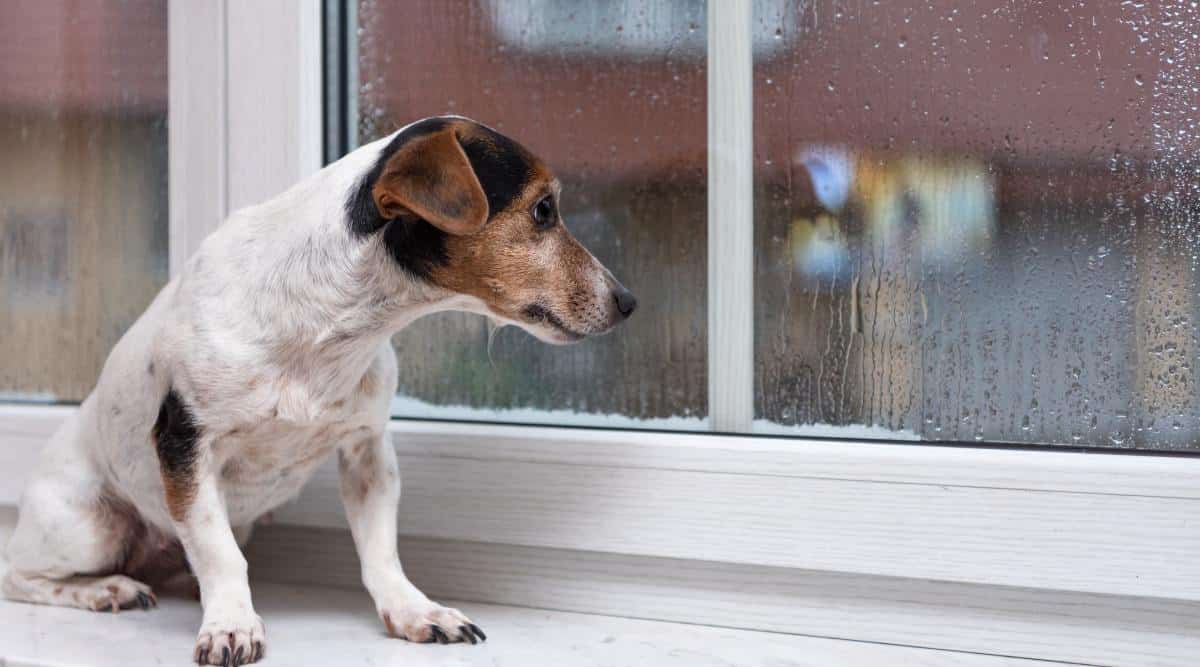
How to Curb Stress-Related Licking
- Increase exercise & mental stimulation – A tired dog is too busy snoozing to obsess over their butt! More walks, playtime, and brain games can help.
- Offer chew toys & puzzles – Chewing is a great stress reliever and a fun distraction from licking. Try interactive toys to keep their mind engaged.
- Use calming aids – Pheromone diffusers, anxiety wraps, or even CBD oil for dogs can help soothe anxious pups.
If the licking persists despite these efforts, consult a vet or behaviorist to rule out canine OCD or deeper anxiety issues.
What To Do If Dog Keeps Licking His Bum: Home Remedies
For mild irritation or hot spots, these over-the-counter remedies may help. But always consult your vet before starting at-home treatment.

- CBD-infused anti-itch spray – Helps soothe abrasions, hot spots, and dry skin. It also helps reduce inflammation and protect against infections. This non-toxic spray includes aloe vera, tea tree oil, chamomile, and other all-natural ingredients.
- Veterinary-grade itch relief spray – Contains lidocaine and hydrocortisone to reduce itching, redness, and swelling and allantoin to help heal wounds. It provides dogs and cats with medicated analgesic and anti-inflammatory relief from inflammation, itchy skin, hot spots, and other skin irritations.
- Oatmeal or medicated baths – Can calm irritated skin and remove allergens.
If symptoms persist, a vet visit is crucial.
Why Do Dogs Sniff and Lick Butts?
Sniffing butts? Totally normal. Licking butts? Not so much.
Dogs rely on scent to gather vital information about other dogs. A quick butt sniff tells them everything: gender, age, mood, and even overall health. This behavior is part of a dog’s natural communication system, helping them recognize familiar dogs and assess new ones.
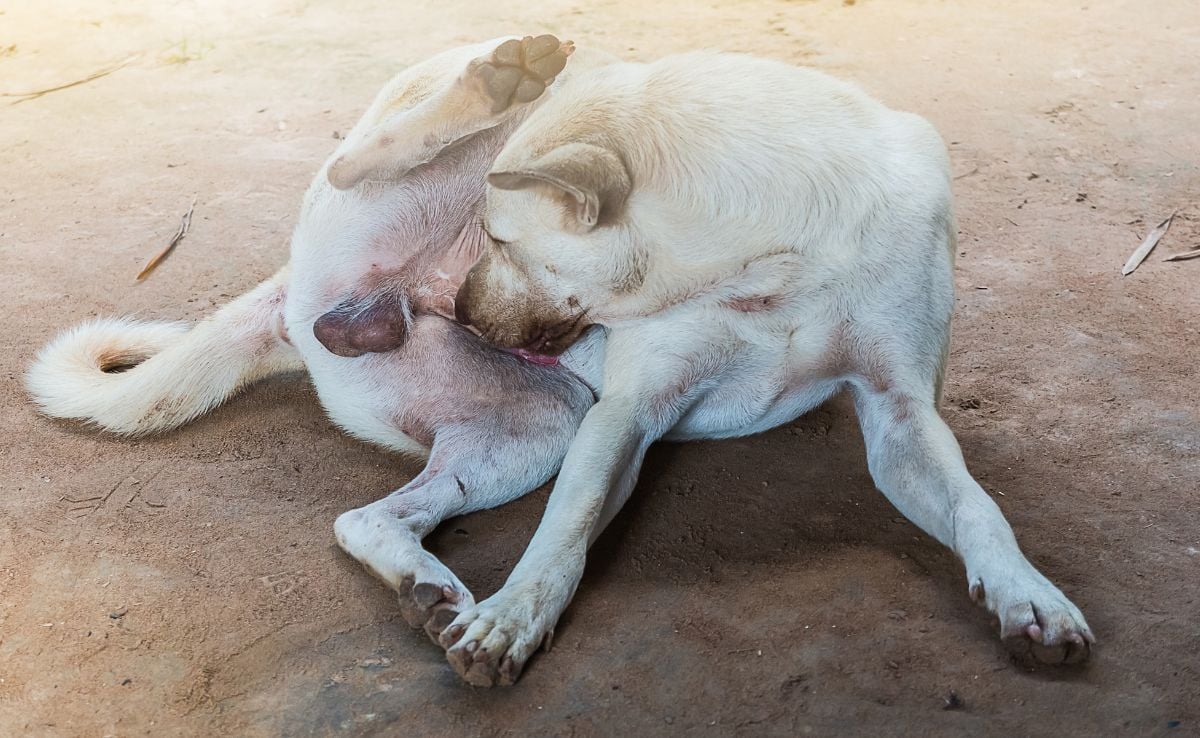
But if your dog goes beyond sniffing and starts licking another dog’s rear, it could indicate:
- A medical issue – Some dogs are instinctively drawn to strong odors caused by anal gland infections, impacted glands, or wounds.
- Exposure to harmful bacteria – Licking near fecal matter can expose your dog to bacteria, parasites, or contagious diseases.
If your dog is a serial butt-licker, a vet visit may be needed to rule out underlying health concerns.
Want to decode more of your dog’s licking habits? Check out our guide on why dogs lick to learn more!
Real-Life Story: The Case of Lily
Canine Journal’s founders, Alex & Michelle Schenker, recently shared a bizarre but all-too-common pet dilemma: their dog, Lily, had developed an unhealthy obsession with her own butt. We’re talking non-stop licking, so much that her bed was constantly wet and needed washing.
At first, they weren’t sure what was causing it. Was it worms? Anal gland issues? Something worse? After ruling out the most alarming possibilities, they decided to take action.
The “Cone of Shame” and a Simple Fix
Lily was temporarily outfitted with the dreaded “cone of shame” to break the habit. They also applied Hot Spot Spray (available on Chewy and Amazon) directly to the affected area. The combination seemed to work, and Lily’s relentless licking finally slowed down to a normal, occasional itch.
Their best guess? Dry skin or allergies, something many dogs deal with seasonally.
For Lily, a little intervention helped resolve the issue. But if your dog won’t stop licking, don’t ignore it! Persistent discomfort could signal an underlying problem that needs a vet’s attention.
Does This Remind You Of Your Dog?
Here’s one owner’s video of their darling dog’s daily butt-licking. Remind you of someone in your home?
Keeping Your Dog Happy, Healthy, and Not in a Butt-Licking Spiral
Your dog’s butt-licking habits might be embarrassing, but they’re also a window into their health. If an occasional lick has turned into an all-day obsession, there’s likely an underlying issue: worms, allergies, impacted anal glands, or even anxiety.
Keep an eye out for redness, scooting, swelling, or any signs of discomfort, and don’t wait to call the vet. It’s easier to fix the issue early than to explain why your dog is giving themselves a deep-tissue massage in front of guests.
The sooner you act, the sooner your pup (and your furniture) can get relief!
Why Trust Canine Journal?
Sally has over 20 years of experience in health sciences communications, including 10 years specializing in pet health conditions and treatments. As part of a team of dedicated canine professionals and experienced dog owners at Canine Journal, she researches and tests the best pet care solutions. From understanding why dogs obsessively lick their rear to exploring effective treatments for anal gland issues, Sally is committed to providing trustworthy, research-backed information to help keep your pup healthy and comfortable.
